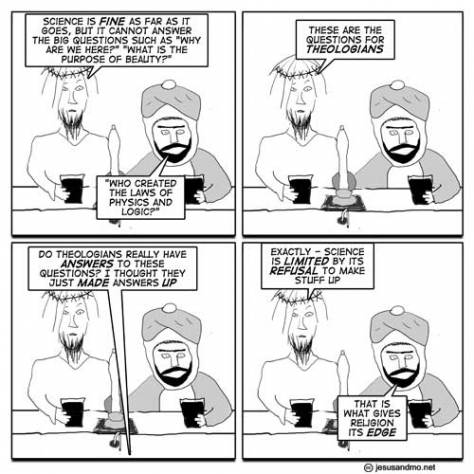10-Christ Is Come-Plato and Christianity
1. What did Plato do for Christianity, and vice versa?
2. How did Origen depart from his teacher Clement?
3. How did Origen view Socrates, in relation to conscience, wrongdoing, Jesus, or the embodied soul?
4. What did Origen do for Christian theology?
DQ
- If the "secret of Paul's success" and Christianity's was their message of belonging, permanence, moral purpose, and hope, what does that tell us about our "deepest emotional needs"? Are our needs philosophically relevant and respectable? 149
- God "has appointed a day" of judgment (148), but - being omniscient - must already know how it will go. Is there a conceptual problem with reconciling an all-knowing, all-powerful creator with the idea of judging his/her/its own creation? Aren't the judg-ees already doomed, having been created imperfect only then to be assessed and penalized for their imperfection?
- Has any religion come close to supplying "the answers to all the questions [of] Plato, Aristotle, and their disciples" (150)? How has Christianity persuaded so many that it has? Why didn't Paul's early Athenian audience set the tone for its subsequent reception?
- Can you explain in simple language what it could mean to "reconcile the eternal split between spirit and matter" (152) by persecuting a charismatic person with a divine afflatus?
- Were Plotinus's students right to protest Clement's "vulgarization of Plato and their master"? 154
- "Churches... still saw themselves largely as centers of worship rather than moral instruction." 159 How do they see themselves and how do you see them today?
- Please post yours...
1. Who first made Church and State a cultural issue?
2. What's the etymology of "religion"?
3. Who asked what Athens has to do with Jerusalem?
4. What did Augustine say about the relation between faith and reason (or rational understanding)?
DQ
- If Tertullian and other early church fathers hadn't declared that "all secular powers are hostile to God," but had instead embraced genuine toleration (freedom from, as well as for religion), do you think our cultural landscape would be very different today? 170
- "By the measure of the age, Constantine was not a superstitious man." 168 Do you buy that?
- Church and State is an intractable issue in American politics, but should it be? Is there serious dispute, constitutional or ethical, as to the necessity of state neutrality regarding religion?
- Justinian deemed himself Ruler of the Cosmos. (172) Clearly his cosmos was too small, but the heads of leaders and aspirants for leadership tend always to be too big. Can you name some genuinely humble world leaders, past or present? How can we innoculate ourselves against the worst from big-headed future leaders?
- Was Arnobius right: will war ever become obsolete? 174
- How would you characterize the appropriate relation between reason and faith? What forms of faith are rationally acceptable? Is it the province of reason to make that determination? Is there anything to be said for Tertullian's and Kierkegaard's "Creo quia est absurdum"?
- Please post yours...
12-Inquiring Minds-Aristotle Strikes Back
1. Boethius, an orthodox Catholic, mentions not even a single what in his Consolation of Philosophy?
2. How did "the Irish save civilization"?
3. What are the seven " liberal arts"?
4. How did Abelard reverse Anselm?
DQ
- Do you agree with Boethius about the place of the liberal arts in a civilized education? 191 Does Higher Ed, generally (if we judge by current trends)? What do you think of the present emphasis on "student success" defined in terms of the rate and rapidity of graduation?
- Comment: Socrates' death was victorious "because Philosophy had been at his side." 189
- What do you think of Boethius' free will solution (God sees everything "in one go" etc.)?
- Do you prefer "the real Plato" or "the yeasty mystical concoction of the Neoplatonists"? 191
- Comment: "God is to be found in goodness itself and nowhere else." 192
- Can philosophers reasonably ignore whatever "doesn't fit into a syllogism"? 195
- Are you impressed at all by the clarity or simplicity of Anselm's Ontological Argument? (197) Is it possibly onto something? Is the J&Mo cartoon below on target?
- Abelard said we need to question and doubt, in order to know. But he never doubted his own Christian faith, saying "I will never be a philosopher." (203) Is his position rationally defensible? Can a critically-minded person simply form a protective wall around specific beliefs, without compromising his/her credibility and intellectual character?
- Please post yours...
We'll soon begin spending the last third of our class period looking at Gros's Philosophy of Walking, but if you can't wait for that I recommend dipping into Rebecca Solnit's wonderful Wanderlust: A History of Walking. Check out the clever trail at the bottom of the pages.
Some old posts-
Romans & redeemers
2.16.10
We get another big swatch of Jennifer Hecht’s Doubt today in A&S,from the Romans and Christians to Hypatia to Zen. The sheer volume of erudition here is dizzying.
Paul of Tarsus, publicist for Jesus (though they’d never met) and founder of Christianity as we know it, gets his 15 seconds. So, this deserves a reprise…

Paul developed and evangelized some of the amazing new ideas that were brewing in the Judaism that raised him. But his biggest ideas,belief in belief and belief in eternal life, were not central to the Jewish tradition.
Jesus was himself a doubter, but Paulian Christianity comes to view doubt as an obstacle to salvation and an impediment to faith rather than a critical tool for seeking evidence and truth (and exposing their absence, in the spirit of Socrates).
Like Socrates, we get Jesus at 2d, 3d, and umpteenth-hand. He wasn’t a writer. The first three Gospels were written about half a century after he died. So maybe he was a Cynic, a doubter and a dedicated thorn in the side of the establishment.
His last words did indeed imply that he was expecting something that did not seem to be happening. The message to the flock ever since, though, seems to have been that it’s ok to doubt so long as you don’t finally act on your doubt. Keepers of the faith have done an impressive job over the centuries of glossing Jesus’ expectations and ours that either something happens or it doesn’t. Looks like it didn’t. Again and again.
But the end-times keep coming back, and belief without evidence turns out to have incredible magic powers to compel assent (or at least stifle dissent). “Everything is possible for him who believes. Help me overcome my unbelief!” As Jesus told Doubting Thomas: “blessed are those who have not seen and yet have believed.” A virgin birth, water-walking, sea-parting, resurrection, eternal life in paradise… no problem. Just believe. “I do believe in magic. I do. I do!” You don’t? What’s the matter with you?? Not enough faith, or– like Augustine, who gets too little credit for paving Descartes’ way– not enough resistance just yet to the seductions of corporeal existence.
This is all so un-pragmatic, this separation of belief from action. (SeeC.S. Peirce: beliefs are ideas we’re prepared to act on, and “what is more wholesome than any particular belief is integrity of belief… to avoid looking into the support of any belief from a fear that it may turn out rotten is quite as immoral as it is disadvantageous.”)
And not just un-pragmatic. Un-American, even, and of questionable sincerity. But there it is. As Tim McGraw’s dad used to insist: ya gotta believe, if you want to win the game of life.
But let’s go back, before we go forward. Cicero‘s wonderful dialogue with a Skeptic, a Stoic, and an Epicurean would have been fun to join. “Cotta” says it all: Are you not ashamed as a scientist, as an observer and investigator of nature, to seek your criterion of truth from minds steeped in conventional beliefs? The whole theory is ridiculous… I do not believe these gods of yours exist at all, least of all the uninvolved, uninterested ones like the Epicurean-inspired Disinterested Deist Deity. If this is all that a god is, a being untouched by care or love of human kind, then I wave him good-bye.
If you want truth, you have to avoid making up anything.
Lucretius (our first selection in the Hitch anthology, from De Rerum Natura) was another Epicurean, but he downplayed the god-talk. The finality of death and the absence of the gods did not seem depressing; indeed, they seemed to add to the sweetness of life.
Marcus Aurelius, as close to a philosopher-king as the West would ever know: “I am a part of the whole which is governed by nature.”He had a Big Picture cosmic perspective. From a vantage “raised up above the earth,” consider life’s brevity and our common humanity. We are one species, as Carl Sagan liked to say, and our time here is brief. Don’t squander it in fear, worry, malice and meanness.
Now, fast forward (past those refreshingly-strange gnostics and their contempt for the creator God) to Boethius, “last of the Romans, first of the scholastics.” His Consolations of Philosophy “completely ignored Christianity.” That’s really hard to do.
Finally (today) the tragedy of Hypatia. Her alleged killer Cyril nearly killed philosophy and science and civilization as well, and was rewarded with Sainthood. What else is new?
==
Faith & reason 2.22.10... medievals & scholastics 2.24.10... Philo to Boethius 2.22.11... Christians 2, Philosophers 0 (Augustine, Boethius, Hypatia) 2.27.12
More potentially-offensive, conversationally-catalytic Jesus and Mo-





No comments:
Post a Comment
Note: Only a member of this blog may post a comment.